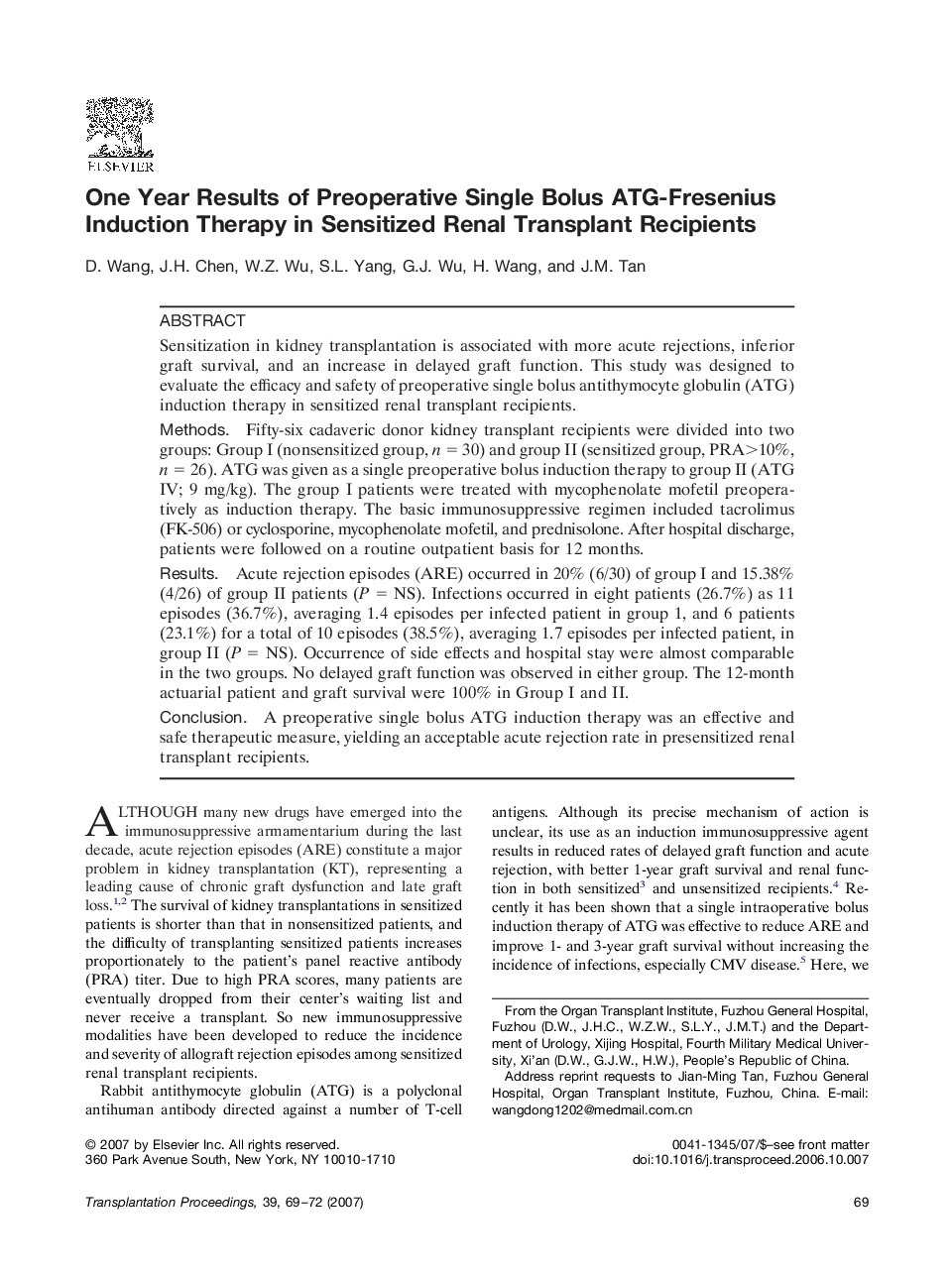| Article ID | Journal | Published Year | Pages | File Type |
|---|---|---|---|---|
| 4262913 | Transplantation Proceedings | 2007 | 4 Pages |
Sensitization in kidney transplantation is associated with more acute rejections, inferior graft survival, and an increase in delayed graft function. This study was designed to evaluate the efficacy and safety of preoperative single bolus antithymocyte globulin (ATG) induction therapy in sensitized renal transplant recipients.MethodsFifty-six cadaveric donor kidney transplant recipients were divided into two groups: Group I (nonsensitized group, n = 30) and group II (sensitized group, PRA>10%, n = 26). ATG was given as a single preoperative bolus induction therapy to group II (ATG IV; 9 mg/kg). The group I patients were treated with mycophenolate mofetil preoperatively as induction therapy. The basic immunosuppressive regimen included tacrolimus (FK-506) or cyclosporine, mycophenolate mofetil, and prednisolone. After hospital discharge, patients were followed on a routine outpatient basis for 12 months.ResultsAcute rejection episodes (ARE) occurred in 20% (6/30) of group I and 15.38% (4/26) of group II patients (P = NS). Infections occurred in eight patients (26.7%) as 11 episodes (36.7%), averaging 1.4 episodes per infected patient in group 1, and 6 patients (23.1%) for a total of 10 episodes (38.5%), averaging 1.7 episodes per infected patient, in group II (P = NS). Occurrence of side effects and hospital stay were almost comparable in the two groups. No delayed graft function was observed in either group. The 12-month actuarial patient and graft survival were 100% in Group I and II.ConclusionA preoperative single bolus ATG induction therapy was an effective and safe therapeutic measure, yielding an acceptable acute rejection rate in presensitized renal transplant recipients.
